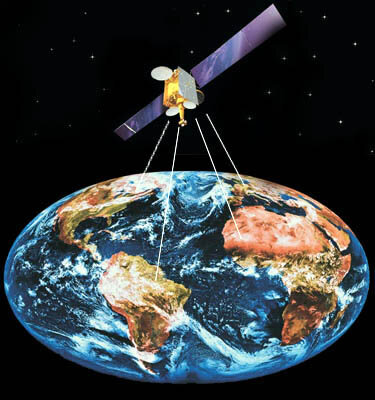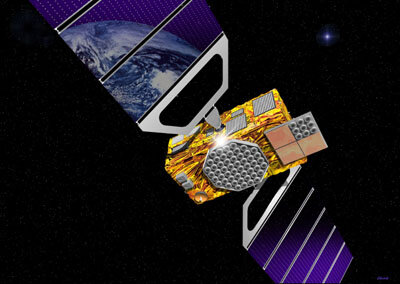The European Commission and ESA launch debate on a space policy for the Union
ESA PR 06-2003. Today in Brussels, European Research Commissioner, Philippe Busquin, introduced the Green Paper on EU Space Policy. The Paper, prepared in co-operation with the European Space Agency (ESA), looks into Europe’s assets and weaknesses in this sector.
As a basis for a broad consultation, the report tackles key issues such as the EU’s independent access to space, scientific excellence in this field, the industrial and technological base, relevant markets, human resources, the legal and institutional framework, international co-operation and environmental and security aspects.
The Green Paper aims to launch a debate with all players - national and international organisations, the EU space industry and users, the scientific community and citizens. The consultation will help shape an EU response to competitiveness and security challenges related to space, to be detailed in a forthcoming White Paper. ESA Director General, Antonio Rodotà, will join Commissioner Philippe Busquin for a formal press presentation of the Green Paper on Monday 27 January at 11 am in Brussels.
Europe: a leader in space

Building on decades of space research and, due in great part to ESA’s efforts, Europe has largely achieved self-sufficiency in space technology and has become a leading space player. Put into orbit by European launchers, European satellites provide businesses, public authorities and individuals with services such as television broadcasting, improved telecommunications, more sustainable transport and mobility, short and medium term weather forecasting, monitoring of climate change and faster response to natural disasters.
A breeding ground for cutting-edge research and innovation in the knowledge society, space applications provide a growth and competitiveness boost for European companies. They provide new markets for European businesses, as well as benefits for European citizens, in areas such as land use planning, agriculture and fisheries management, sustainable transport, civil security and response to emergencies.
In the field of satellite navigation, Galileo is experiencing some delay, but ESA and the Commission are confident that pending issues can be resolved so as to allow the initiative to take off as planned.

Over the last few decades, space policy has been managed at intergovernmental level through ESA and at national level through national space Agencies and other national bodies. The European Space Agency, with its unique knowledge base, plays a leading co-ordination role in Europe’s successful efforts to consolidate its industrial base and achieve technological independence. It has provided Europe with its present capacities in the area of launchers and spacecraft, turning it into a leading world player in a highly competitive commercial field.
Space has become a crucial component for implementing European objectives and policies, notably sustainable development, environmental protection, transport and mobility and the information society. Space applications also provide answers to emerging security needs, with both civilian and defence aspects encompassed by the EU Common Foreign and Security Policy (CFSP) and the European Security and Defence Policy (ESDP).
The Galileo project and the GMES (Global Monitoring for the Environment and Security) initiative illustrate this new approach and underline the need for an enhanced role for the Union in space matters. They show how industrial and technological successes achieved by ESA can be maximised through joint space initiatives.
It is therefore logical to raise the possibility of integrating space into Union competence. This would open up the elaboration of a Space Programme enabling an efficient EU action in the space domain, including a vast range of new applications for industry and citizens.
The consultation

The role of the Green Paper is therefore to launch an in-depth debate involving all parties. Its objective is to increase general awareness of the strategic importance of space and space policy for the Union and its citizens, to define areas of consensus and to find concrete answers to questions concerning access, funding, and institutional arrangements.
The consultation will run from 22 January to 30 May 2003. It will be managed by the Commission/ESA Joint Task Force on space, which will organise a series of seminars, workshops and hearings throughout Europe to foster the debate. Contributions can also be presented online through a dedicated Web Forum. On the basis of responses received from all interested parties, a White Paper will be drafted by the Commission and published later in the year, putting forward concrete proposals in an Action Plan.
The Green Paper on Space and prospects for further co-operation between the European Commission and the European Space Agency will be discussed in a forthcoming joint press conference with the participation of European Research Commissioner, Philippe Busquin, and ESA Director-General, Mr Antonio Rodotà (see attached registration form).
For further information please contact:
Franco Bonacina
ESA Media Relations Service
Tel: +33(0)1.53.69.7155
Fax: +33(0)1.53.69.7690
Fabio Fabbi
European Commission
Tel: +32.2.296.41.74
Lone Mikkelsen (EC): + 32 2 296.05.67







